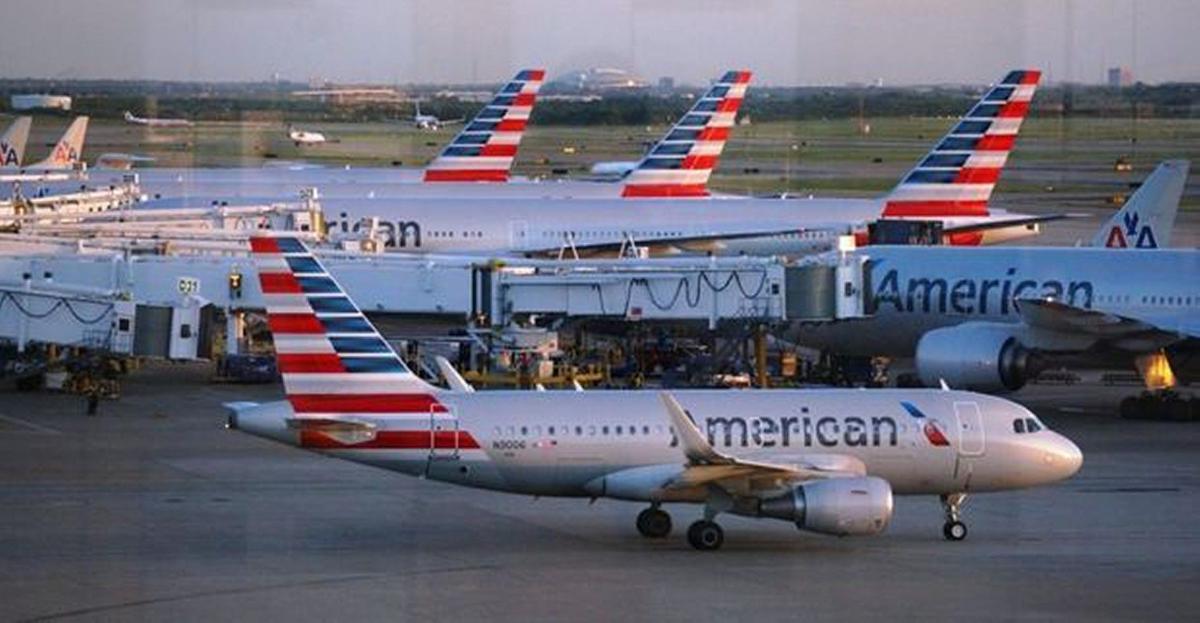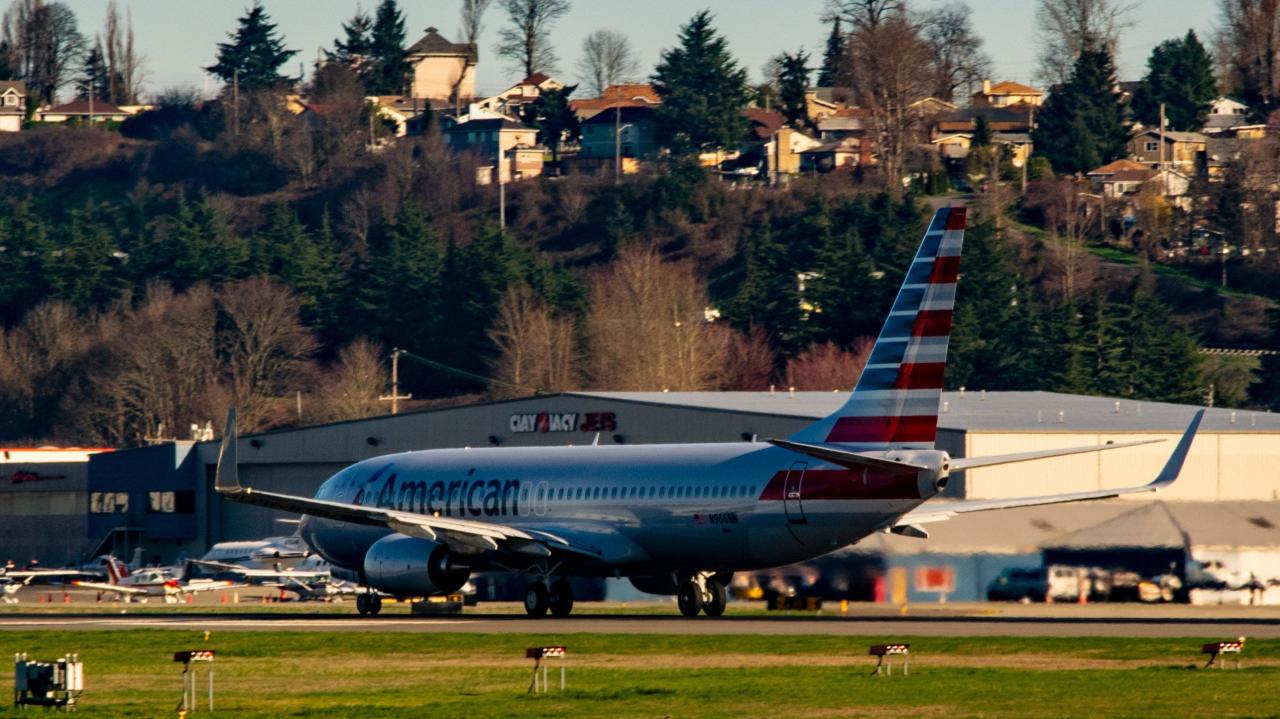American Airlines not flying to Dallas is impacting travelers significantly. This unexpected shift in flight routes has created challenges for passengers, forcing many to scramble for alternative travel arrangements. We’ll explore the reasons behind these cancellations, the impact on affected passengers, and the available options for those seeking to reach Dallas. This exploration aims to provide clarity and support during this period of disruption.
The recent changes to American Airlines’ flight schedule, specifically the suspension of several routes to Dallas, have sparked considerable concern among travelers. This article delves into the specifics of these cancellations, examining the underlying causes, the airline’s response, and the steps passengers can take to mitigate the impact on their travel plans. We’ll also explore alternative airlines and provide practical advice for navigating this situation.
Impact on Passengers: American Airlines Not Flying To Dallas

The cancellation of American Airlines flights to Dallas has undoubtedly caused significant disruption and inconvenience for numerous passengers. Understanding the impact on affected travelers is crucial for both American Airlines and those whose travel plans were altered. This section details the challenges faced and how American Airlines has responded to these unforeseen circumstances.American Airlines’ response to the cancellations has involved a multi-pronged approach aimed at minimizing disruption for passengers.
This includes proactive communication, expedited rebooking options, and in many cases, financial compensation. While the experience has undoubtedly been stressful for many, the airline has worked diligently to rectify the situation and ensure passenger well-being.
Passenger Rebooking and Compensation
American Airlines has prioritized rebooking passengers on alternative flights to their final destinations. This has involved utilizing flights from other airlines where necessary, ensuring passengers reach their planned destination as quickly and smoothly as possible. In cases where alternative flights resulted in significant delays or added expenses, such as hotel accommodations, the airline has offered compensation to affected passengers.
The specific compensation varies depending on the individual circumstances and the extent of the disruption. For example, passengers whose flights were delayed by more than 12 hours often received vouchers for future flights, while those experiencing significant financial losses due to the cancellations have received reimbursements for expenses incurred.
Challenges Faced by Passengers
The cancellation of flights to Dallas presented numerous challenges for passengers. These ranged from significant travel disruptions, forcing changes to pre-arranged accommodation and connecting flights, to substantial financial losses. Many passengers faced unexpected expenses such as overnight stays in airports or hotels, additional transportation costs, and the need to rearrange work schedules or personal commitments. The disruption caused considerable stress and inconvenience, highlighting the importance of robust contingency plans for both the airline and individual travelers.
For example, a business traveler whose flight was canceled might have missed an important meeting, resulting in lost business opportunities and financial penalties. A family traveling for a special event might have had to reschedule or forgo the event altogether.
Passenger Action Plan Following Flight Cancellation
The following flowchart illustrates the steps a passenger should take if their American Airlines flight to Dallas is canceled:[Imagine a flowchart here. The flowchart would begin with a box labeled “Flight to Dallas Cancelled.” Arrows would lead to subsequent boxes: “Contact American Airlines Customer Service,” “Explore Alternative Flight Options (American Airlines or other carriers),” “Document all expenses (receipts, etc.),” “Submit claim for compensation (if applicable),” and finally “Await resolution/compensation.” Each box would have clear instructions and further branching options where appropriate.
The flowchart would visually represent a clear, step-by-step process.]
Underlying Reasons for Cancellations
American Airlines’ decision to reduce flights to Dallas is a complex issue stemming from a confluence of factors, rather than a single, isolated event. Understanding these underlying reasons is crucial for both the airline and its passengers, allowing for better planning and a more transparent understanding of the situation. While the exact weighting of each factor is proprietary information, a reasoned analysis can shed light on the probable contributors.The reduction in flights to Dallas likely reflects a strategic realignment of resources based on a combination of operational considerations, evolving passenger demand, and potentially, some infrastructural challenges at Dallas/Fort Worth International Airport (DFW).
This is not an unprecedented situation; American Airlines, like all major carriers, regularly adjusts its route network in response to changing circumstances. Past instances of route adjustments have often involved similar factors, demonstrating a proactive approach to optimizing operational efficiency and aligning with market demands.
Airport Infrastructure Considerations
The Dallas/Fort Worth International Airport (DFW), while a major hub, is constantly evolving. Ongoing construction projects, maintenance schedules, or unexpected delays in infrastructure upgrades can impact gate availability and overall operational efficiency. These temporary disruptions can necessitate route adjustments, especially for an airline as large as American. For example, runway closures for resurfacing or gate renovations, even if planned, can ripple through the airline’s schedule, requiring temporary route adjustments to maintain a smooth flow of operations.
Such adjustments are often temporary, designed to mitigate disruptions and maintain on-time performance for the majority of flights.
Fluctuations in Passenger Demand
The airline industry is highly sensitive to fluctuations in passenger demand. Seasonal changes, economic downturns, or even unforeseen events can significantly affect the number of passengers traveling to and from specific destinations. A decrease in demand for flights to Dallas, perhaps due to a temporary economic slowdown in the region or a shift in travel patterns, could lead American Airlines to temporarily reduce its flight frequency to optimize resource allocation.
Historical data on passenger numbers for DFW could reveal seasonal trends or broader economic influences that may be contributing to this reduction.
Operational Challenges and Resource Allocation, American airlines not flying to dallas
American Airlines, like any large organization, faces operational challenges. These could range from pilot and crew scheduling difficulties to aircraft maintenance issues. A shortage of pilots or maintenance delays could necessitate a temporary reduction in flights to certain destinations to ensure the airline maintains a safe and efficient operation across its entire network. This is a proactive measure to prevent cascading effects that could lead to more significant disruptions in the long run.
Prioritizing operational stability and safety is paramount for any airline. For example, unexpected mechanical issues with a significant portion of the fleet serving the Dallas route could force a temporary reduction in flight frequency.
Alternative Travel Options

American Airlines’ temporary suspension of flights to Dallas presents a challenge, but numerous alternative travel options exist to ensure you reach your destination. Exploring these alternatives allows for flexibility and potentially even better travel experiences. This section will Artikel some viable choices, highlighting key aspects to aid in your travel planning.Finding suitable replacement flights involves considering several factors including flight frequency, pricing, and baggage allowances.
Fortunately, several reputable airlines offer comparable routes and services, providing a range of choices to meet individual needs and preferences. Utilizing online travel agencies can streamline the search and booking process, offering a centralized platform to compare options effectively.
Alternative Airlines Serving Dallas
Several airlines offer flights to Dallas from various cities, providing viable alternatives to American Airlines. Southwest Airlines, Delta Air Lines, and United Airlines are prominent examples, each offering diverse flight schedules and pricing structures. By comparing these airlines, travelers can identify the best fit for their specific travel needs and budget.
| Airline | Flight Frequency (Example: Dallas to New York) | Price Range (One-Way, Economy) | Baggage Allowance (Economy) |
|---|---|---|---|
| Southwest Airlines | High (Multiple daily flights) | $150 – $400 | One free checked bag |
| Delta Air Lines | Moderate (Several daily flights) | $180 – $450 | One free checked bag (size and weight restrictions apply) |
| United Airlines | Moderate (Several daily flights) | $200 – $500 | One free checked bag (size and weight restrictions apply) |
Using Online Travel Agencies for Booking
Online travel agencies (OTAs) such as Expedia, Kayak, and Google Flights provide invaluable tools for comparing flight options across multiple airlines. These platforms allow users to input their origin and destination cities, travel dates, and passenger numbers, instantly generating a comprehensive list of available flights, sorted by price, airline, and schedule. The ability to filter results based on specific criteria such as baggage allowance, layovers, and flight duration significantly simplifies the search process, ensuring a tailored and efficient booking experience.
Many OTAs also provide real-time pricing updates and allow for easy comparison shopping, enabling travelers to make informed decisions based on their individual priorities. For example, a traveler searching for a flight from New York to Dallas using Kayak might see options from Southwest, Delta, and United, all displayed together with their respective prices and schedules. This allows for quick and efficient comparison before making a booking.
While the suspension of American Airlines flights to Dallas presents a significant challenge for travelers, understanding the reasons behind these changes and exploring available alternatives empowers passengers to navigate this disruption effectively. Remember, resourceful planning and proactive communication can help ensure a smooth journey, even amidst unforeseen circumstances. The travel industry is dynamic; adaptability and resilience are key to a positive travel experience.
FAQ Guide
Will American Airlines resume flights to Dallas?
The resumption of flights depends on the resolution of the underlying issues causing the cancellations. Check the American Airlines website for updates on flight schedules.
What compensation am I entitled to if my flight is canceled?
Compensation depends on the reason for cancellation and American Airlines’ policies. Contact American Airlines customer service for details regarding your specific situation.
Can I rebook my flight on a different airline?
Yes, you can explore alternative airlines offering flights to Dallas. Online travel agencies can assist in finding suitable options.
What if I have connecting flights affected by the Dallas cancellations?
Contact American Airlines immediately to arrange alternative connections or receive a refund. They should assist with rebooking or provide suitable compensation.